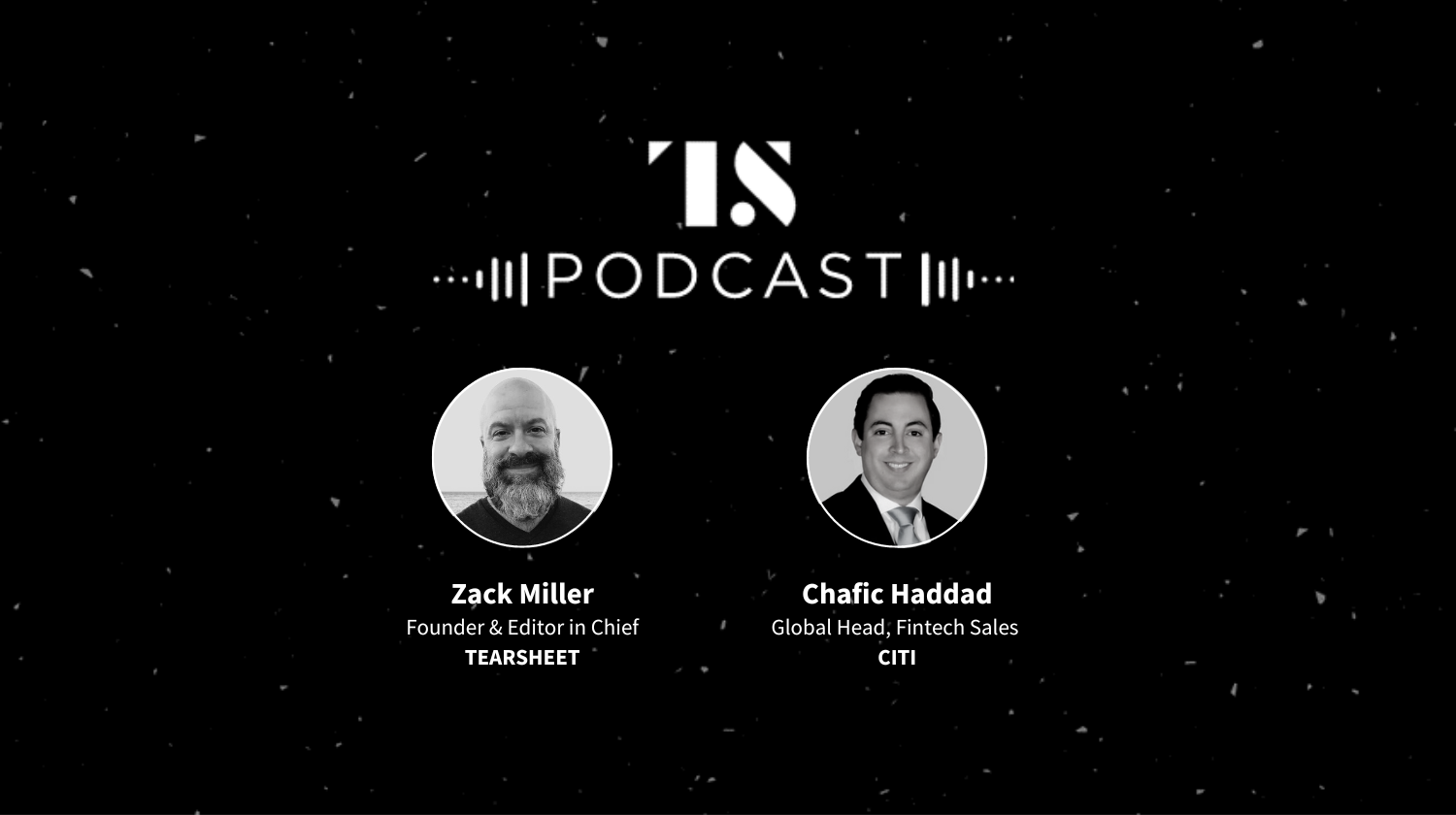Podcasts
Behind Citi’s move to become a global partner bank, with Chafic Haddad
- If 2022 was the year of launching partnerships between FIs and tech firms, this year is more about fine-tuning them.
- Tearsheet sat down with Chafic Haddad to discuss what Citi offers fintechs and the challenges and opportunities in providing these firms with global transaction and trade capabilities.








